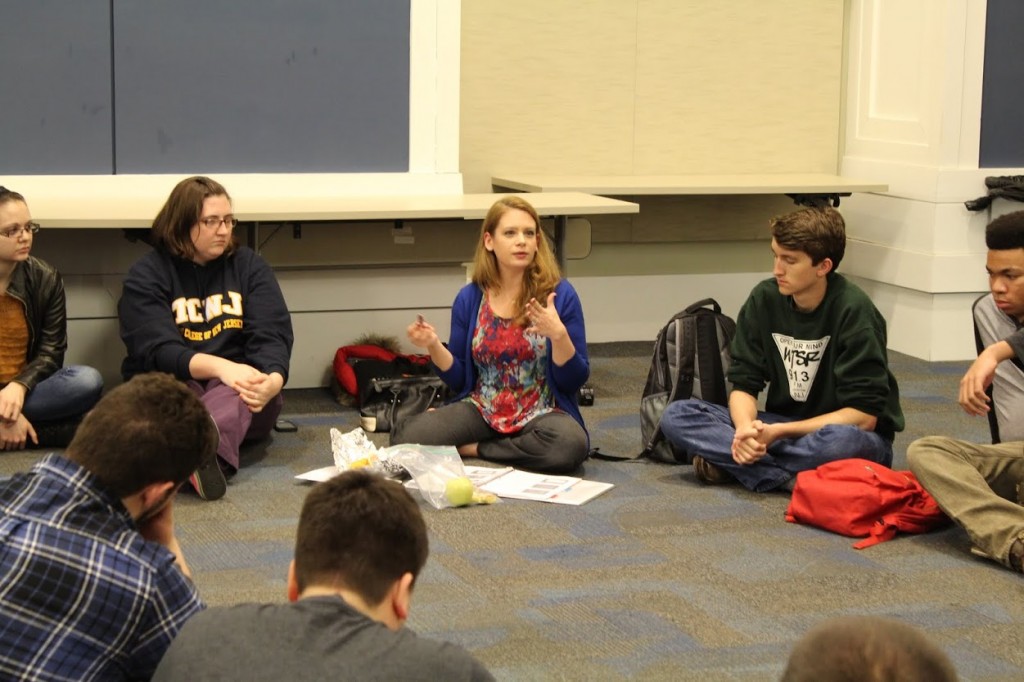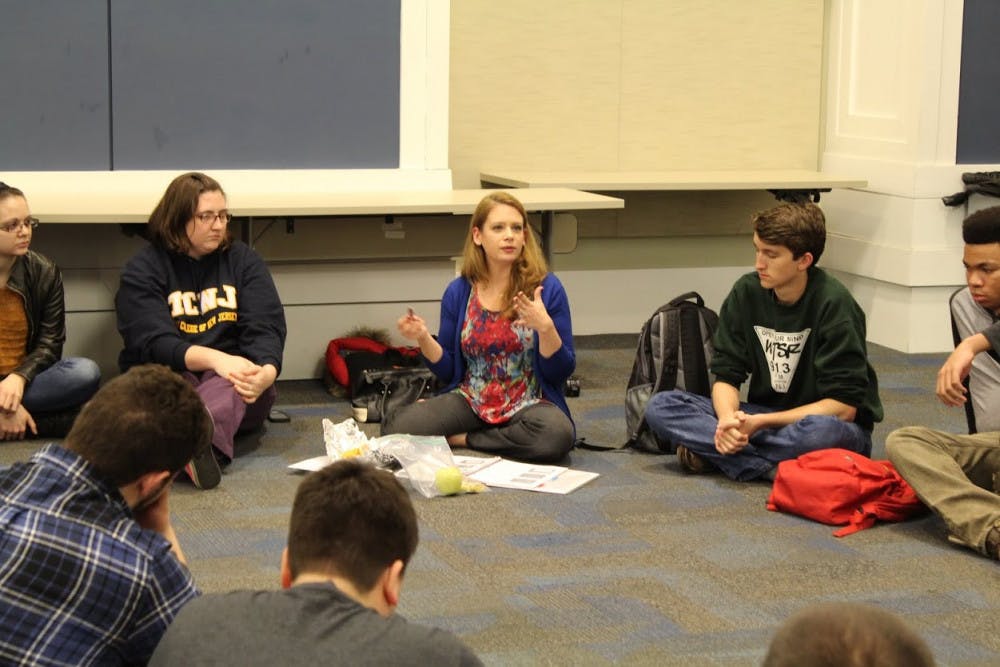By John Irvine
Staff Writer
“Rape” and “consent.” These are two words that generally bring to mind clear-cut meanings.
However, perhaps they’re not as straightforward as we’ve been led to believe, according to Hank Fradella, a professor in and associate director of the School of Criminology and Criminal Justice at Arizona State University. And perhaps the laws that surround these words aren’t so straightforward, either.
“What if the female consents to initial penetration, then withdraws her consent during an act of intercourse, but the male continues against her will?” Fradella asked. “Would this be considered rape?”
Such questions were not only fuel for discussion, but they also highlighted laws that can’t always capture the intricacies of each situation in Fradella’s talk “Sex, Sexuality, Crime, and (In)Justice: A Look at the Evolution of the Social Control of Rape,” which he delivered on Thursday, March 26, in the Education Building.
“We need to do a better job of improving civic understanding of the law,” Fradella said. “Everyone is presumed to know the law on their 18th birthday, but that’s not the case.”
And so the problem is compounded. We are dealing with imperfect laws, which many people do not have a full grasp of in the first place.

“Our brains are not even fully developed until our mid ’20s, yet we hold people to the standards of the law at 18,” said Fradella, who majored in psychology as an undergraduate student at Clark University before acquiring a J.D. from The George Washington University and a Ph.D. from Arizona State University in interdisciplinary justice studies.
It is our job as citizens in a democracy, Fradella suggested, to begin intellectual discussions as often as possible. Just by making people more aware of these issues, of the nuances in the meanings of the words “rape” and “consent” and of the laws around them, do we move one step closer to eliminating these problems.
Education, it seems, can be one answer to mitigating sexism, racism, ageism and homophobia, among other issues — not just from our laws but more simply from our world. And this is not a five-year program with heavy research and a dissertation education. This is the education that anyone can provide: an intellectual discussion at the end of which two or more people are more knowledgeable about these issues.
“We will never stomp out racism and sexism in the law, but (we) can make it so that these things are the exception and not the rule,” Fradella said.
The talks that Fradella delivers, mostly on college campuses owing to their notoriety for rape, are his way of getting these discussions started. He hopes that those who attend will leave as more educated individuals who can then start their own discussions as educators themselves.
Caitlin Wiesner, a senior history and Women’s and Gender Studies double major who attended Fradella’s talk, now finds herself much more informed on some of these complicated topics.
“Fradella’s talk gave me a historical context of what constitutes as a rape with a more structural breakdown from a criminology perspective,” Wiesner said. “I was given some new things to think about that I never figured into my definition of it.”
Wiesner said the talk also made her reconsider how she defines consent.
“It made me realize how difficult it is to prove things like consent in the courtroom,” Wiesner said.
Fradella hopes this cycle of education will perpetuate itself, and help people to steer clear of breaking the laws. But for the laws themselves, we must work to combat sexism there as well.
“We can definitely do better at dealing with sexism in the law, but that’s already too late … eliminating sexism needs to start with uteri,” Fradella said.
In other words, sexism must be countered in each individual and at the roots of culture, not merely when an issue arises in the courtroom.







